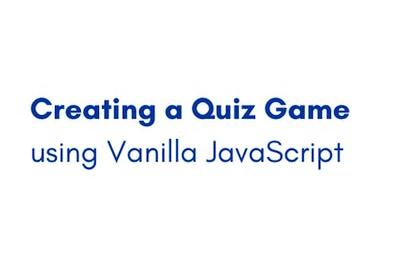

Our Courses

IELTS Writing Section Skills Mastery
Whether you have taken the IELTS test before, you will benefit from completing this course on the writing section of the exam. The lessons in this course will improve your overall skills in writing and prepare you for every type of writing prompt on the test, increasing your chances of getting your target band score. You will be ready to give well-constructed responses to Academic Writing Task 1 questions, which require you to analyze a variety of graphics and diagrams. You will also be able to confidently complete Writing Task 2, the opinion essay portion of the exam.
-
Course by

-
 Self Paced
Self Paced
-
 7 hours
7 hours
-
 English
English

William Shakespeare's Romeo & Juliet: An Actor's Perspective
Have you ever wanted to read Shakespeare's Romeo and Juliet? This course will provide a guided reading of the script and expose you to the perspectives of actors who've performed in the play. It primarily consists of interviews with 14 professional actors who have participated in at least one production of Romeo & Juliet somewhere in the US, at theaters and Shakespeare festivals including the American Shakespeare Center, American Players Theatre, and the Arkansas, Colorado, Illinois, New Jersey, and Utah Shakespeare Festivals.
-
Course by

-
 Self Paced
Self Paced
-
 10 hours
10 hours
-
 English
English

Build and Utilize Forms in LibreOffice Base
By the end of this project you will have used LibreOffice to create and use a variety of forms for entering, updating, and browsing data in relational tables.
-
Course by

-
 Self Paced
Self Paced
-
 2 hours
2 hours
-
 English
English

Capstone: Connected Planning for Business Transformation
The Capstone: Connected Planning for Business Transformation course will be deprecated at the end of January 2025. Please plan to complete all coursework by that time, and save any notes you wish to keep outside of Coursera to ensure future access. This course is the capstone project for learners completing the Connected Planning for Business Transformation specialization. In this project, you will develop a rationale and roadmap for Connected Planning implementation in your own organization.
-
Course by

-
 Self Paced
Self Paced
-
 5 hours
5 hours
-
 English
English

Real-World Cloud PM 3 of 3: Security, AWS Well-Architected
Sponsored by AMAZON WEB SERVICES (AWS). Learn real-world technical and business skills for product managers or any job family involved in the rapidly expanding cloud computing industry. Ace the AWS Certified Cloud Practitioner Exam. This course is the 3rd in a 3-course Specialization.
-
Course by

-
 Self Paced
Self Paced
-
 10 hours
10 hours
-
 English
English

Increase Student Buy in with Google Slides
By the end of this project, you will have created a student punchcard that will engage your students during virtual learning or as a more engaging way to encourage buy in during classroom learning.
-
Course by

-
 Self Paced
Self Paced
-
 2 hours
2 hours
-
 English
English

Sass Tutorial
Learn how to write efficient and modular CSS code with Sass, a popular preprocessor scripting language. Our course covers Sass fundamentals such as variables, nesting, partials, and mixins, as well as advanced features like functions, loops, and conditional statements. Improve your workflow, reduce code size, and manage complex projects with Sass. Enroll now and become a Sass pro! The course is self-paced with text based modules, practical interactive examples and exercises to check your understanding as you progress. W3schools is the world's largest web developer learning site.
-
Course by

-
 Self Paced
Self Paced
-
 4 hours
4 hours
-
 English
English

Business Operations Support in Google Sheets
By the end of this project, you will create a Google Sheet that receives customer requests, tracks employee workload, and provides a small business with an overview of current project status and historical data for completed projects. You will learn how to create a custom form and use the data from the form to track requests, assign work to employees, and create a snapshot of current and past projects.
-
Course by

-
 Self Paced
Self Paced
-
 3 hours
3 hours
-
 English
English

APIs Explorer: App Engine
This is a self-paced lab that takes place in the Google Cloud console. In this lab, you will get hands-on practice configuring and deploying an App Engine instance with the APIs Explorer tool.
-
Course by

-
 Self Paced
Self Paced
-
 1 hour
1 hour
-
 English
English

Networking Fundamentals
Students start by learning basic network theory and terminology including network components, node functions, types of networks and network models. Students will gain an understanding of the Open Systems Interconnection (OSI) model and the TCP/IP Model including encapsulation and common network protocols. Students learn about data transmission methods and ethernet including CSMA/CD and CSMA/CA. The course covers wired and wireless networking standards, and networking hardware including switches and routers.
-
Course by

-
 Self Paced
Self Paced
-
 26 hours
26 hours
-
 English
English

The Holocaust: The Destruction of European Jewry
The Holocaust: The Destruction of European Jewry is an adaptation of an on-campus course that has been co-taught by Murray Baumgarten, Distinguished Professor of English and Comparative Literature (Literature Department), and Peter Kenez, Professor Emeritus (History Department), for over 20 years at UC Santa Cruz. In this course, you will explore the Holocaust from the overlapping perspectives of literature and history—through memoirs, historical documents, poetry, documentary footage, filmic representations, and novels.
-
Course by

-
 Self Paced
Self Paced
-
 30 hours
30 hours
-
 English
English

A Geometrical Approach to Genome Analysis: Skew & Z-Curve
In this 1-hour long project-based course, you will learn how to analyze a complete viral genome using geometrical methods (skews and Z-curve), 2D- and 3D-plotting in Python, and how to use some important Python libraries (like Tkinter, Matplotlib, and NumPy) helping you accomplish this.
-
Course by

-
 Self Paced
Self Paced
-
 3 hours
3 hours
-
 English
English

The People, Power, and Pride of Public Health
The People, Power, and Pride of Public Health provides an engaging overview of the incredible accomplishments and promise of the public health field. The first module includes interviews with legendary public health figures whose work led to millions of lives saved with vaccines, air bags and car seats, and the federal Women Infants and Children (WIC) nutrition program. The second module brings key public health tools to life -- including use of data, communications, and policy - through discussions with experienced professionals who have used these tools to save lives.
-
Course by

-
 Self Paced
Self Paced
-
 5 hours
5 hours
-
 English
English

How to create a Facebook or Instagram Ad with Mailchimp
Here you will learn how to create a Facebook advert with MailChimp.
-
Course by

-
 Self Paced
Self Paced
-
 3 hours
3 hours
-
 English
English

Creating a Quiz Game using Vanilla JavaScript
By the end of this project, you will be able to create a multi app Quiz Game using Vanilla JavaScript. You will be able to add variables by keywords LET and CONST.. You will also loop on the choices and add IF conditions. In addition , you will be able to save input data from the web page in the local storage and use it in a JavaScript file. Moreover, you will be able to use an array , push from it and reverse it, you will be able to movefrom one page to another using JavaScript, and finally, you will create and apply functions and also apply pre-defined functions.
-
Course by

-
 Self Paced
Self Paced
-
 3 hours
3 hours
-
 English
English

Hot Topics in Criminal Justice
The American criminal justice system is in need of reform. We incarcerate too many people. We pay insufficient attention to scientific advances that can help separate out the most and least culpable and dangerous. We grant the police far too much power to use force and technological surveillance. As a way of thinking about dealing with these problems, this course examines two over-arching issues: What should we do with people who have committed crime, and how should we identify who they are?
-
Course by

-
 Self Paced
Self Paced
-
 19 hours
19 hours
-
 English
English

Positive Psychology: Resilience Skills
Learn how to incorporate resilience interventions into your personal and professional life with Dr. Karen Reivich. In this course, you are exposed to the foundational research in resilience, including protective factors such as mental agility and optimism. Several types of resilience interventions are explored including cognitive strategies; strategies to manage anxiety and increase positive emotions such as gratitude; and a critical relationship enhancement skill. Throughout the course, you will hear examples of individuals using resilience skills in their personal and professional lives.
-
Course by

-
 Self Paced
Self Paced
-
 16 hours
16 hours
-
 English
English

Position Elements on a Page with CSS
In this intermediate-level course you will explore how CSS (Cascading Stylesheets) can be used to control the position of objects on your web page.
-
Course by

-
 Self Paced
Self Paced
-
 2 hours
2 hours
-
 English
English

Housing Justice: A View from Indian Cities
This course will introduce learners to different approaches to thinking about housing justice, bringing together material, ecological, social and spatial approaches to thinking about housing. Rooting itself in Indian cities, but speaking more broadly to struggles for housing justice more globally, it will offer a diagnosis of what housing justice looks like as well as the modes and practices that can move us towards it ranging from activism and direct action to public policy and participatory governance.
-
Course by

-
 Self Paced
Self Paced
-
 17 hours
17 hours
-
 English
English

Generate a User Experience (UX) Onboarding Map in Miro
By the end of this project, you will be able to generate a user experience onboarding map to visualize the complete entry process that a user has at the start of their relationship with a brand so that an organization can grow longevity by ensuring that they get off on the right foot with users.
-
Course by

-
 Self Paced
Self Paced
-
 2 hours
2 hours
-
 English
English

Exploring Beethoven's Piano Sonatas Part 6
Welcome to Exploring Beethoven's Piano Sonatas Part 6! You’re joining thousands of learners currently enrolled in the course. I'm excited to have you in the class and look forward to your contributions to the learning community. To begin, I recommend taking a few minutes to explore the course site. Review the material we’ll cover each week, and preview the assignments you’ll need to complete to pass the course.
-
Course by

-
 Self Paced
Self Paced
-
 6 hours
6 hours
-
 English
English

Salesforce Reporting
Salesforce Reporting focuses on how the micro-level changes in Salesforce affect the macro level of the user experience. In this course, you will focus on creating custom objects, field dependencies, and work flows to track accounts or services. It is also important that you maintain data clean for your organization and you will work with creating reports, managing data, and creating full reports and dashboards. Lastly, you will focus on your customer base with Salesforce Service Cloud to maintain engagement through your services.
-
Course by

-
 Self Paced
Self Paced
-
 24 hours
24 hours
-
 English
English

Using Descriptive Statistics to Analyze Data in R
By the end of this project, you will create a data quality report file (exported to Excel in CSV format) from a dataset loaded in R, a free, open-source program that you can download. You will learn how to use the following descriptive statistical metrics in order to describe a dataset and how to calculate them in basic R with no additional libraries.
-
Course by

-
 Self Paced
Self Paced
-
 3 hours
3 hours
-
 English
English

Facial Expression Classification Using Residual Neural Nets
In this hands-on project, we will train a deep learning model based on Convolutional Neural Networks (CNNs) and Residual Blocks to detect facial expressions.
-
Course by

-
 Self Paced
Self Paced
-
 3 hours
3 hours
-
 English
English

BigQuery: Qwik Start - Console
This is a self-paced lab that takes place in the Google Cloud console. This lab shows you how to query public tables and load sample data into BigQuery using the Web UI. Watch the short videos Get Meaningful Insights with Google BigQuery and BigQuery: Qwik Start - Qwiklabs Preview.
-
Course by

-
 Self Paced
Self Paced
-
 1 hour
1 hour
-
 English
English



